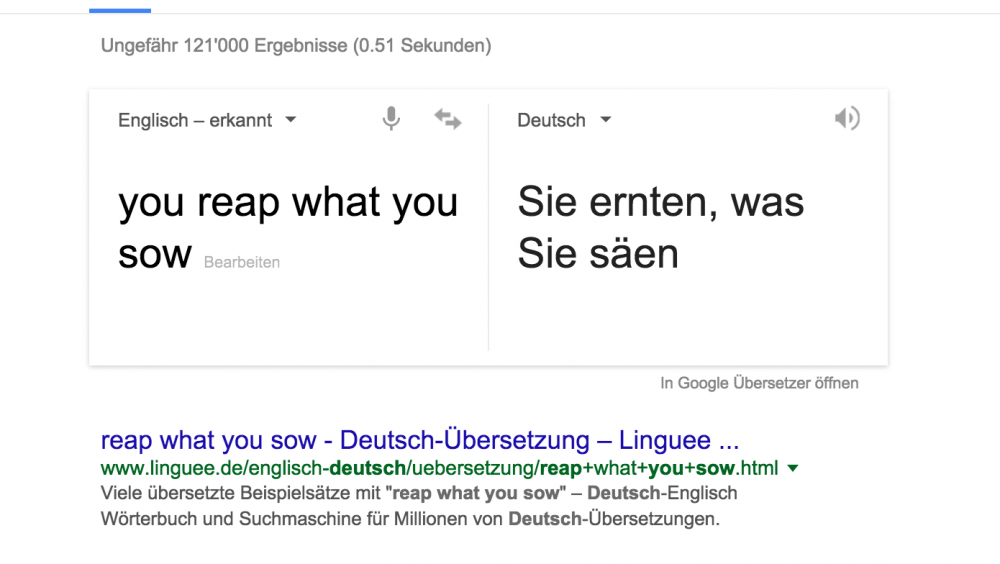-
Posts
2185 -
Joined
-
Last visited
-
Days Won
46
Everything posted by linguaholic
-

[Duolingo] Sometimes, Duolingo makes us write dumb things.
linguaholic replied to 111kg's topic in Language Study Apps
I often hear people saying that Duolingo makes them write dumb things. However, as long as a sentence or phrase is grammatically correct, I still see some use in it because it will help you to master the grammar of a language nonetheless. Sometimes stupid/weird sentences are probably even better than regular ones, because weird/stupid sentences are more likely to stick than just a boring example/sentence. -

What do you think of those learning 5 languages at once?
linguaholic replied to Trellum's topic in Language Learning
Hey Anna It looks like you are even studying 6 languages at the same time We might have to start another thread for that :=) -
Very interesting indeed. I probably would not go as far as to say that some people have a 'disability' to learn forum languages, I would just say that they absolutely have no talent when it comes to languages and language learning. Same as for a lot of people who are actually good in languages often have a lot of struggle to learn anything about math and logical matters. Im curious to hear what everybody else has to say about this interesting topic/question.
-

Words pronounced online - forvo.com or others?
linguaholic replied to anna3101's topic in Language Learning
I just had a look at it and it looks like an amazing website. I love projects like this one. Thanks for sharing this, Anna! -
After all wordreference.com is also a language learning forum... and it might be even the busiest language-related forum on this planet!
-
Actually there is no dedicated section for Mongolian. However, feel free to start a thread/topic on it here: http://linguaholic.com/forum/68-study-other-languages/
-
wordreference.com is an amazing website. It is huge as well. Hopefully linguaholic.com will be like this one day as well.
-
hahahaha. I know that one, that's right :=)
-

Deine schönsten Ferien
linguaholic replied to linguaholic's topic in German Lounge | Conversations in German only
That's absolutely right Multilingo. There is one small mistake I would like to point out in your text. In Deutsch schreibt man alle Nomen in Großbuchstaben. The plural of 'Der Großbuchstabe' is actually 'Die Grossbuchstaben'. So please make sure you don't forget that n at the end ^^. -
hehe ok, will do. But from my experience I can tell that it is so much better to have have a limited amount of subforums, so I guess a subforum for Kurdish will not happen (at least not yet). :=) But feel free to start discussions about Kurdish in the 'Study more languages' section!
-

Tagalog words with no direct translation to english
linguaholic replied to g2narat's topic in Study Tagalog
haha, funny story :=) -
I think Graded Readers are a valuable resource for Language Learning. When studying a foreign language, reading books is a great thing to do but it is very easy to stop reading books/novels/short stories in other languages because the effort that one has to make if his/her knowledge in that specific language is not good enough, is huge. I often read in Chinese, for instance. However, there are still quite a lot of words that I don't know and it is so exhausting to look up all these words when reading. So, to sum up: If the text you are reading in a foreign language is too difficult, you might not get too far because you are constantly forced to 'take a break' and look things up in the dictionary, so you probably never actually get into the story at all.
-
-
You are right *Beatrish* ! Actually "You reap what you sow" also exists in German. Even Google Translate got that one right: "Sie ernten, was Sie säen"
-
Good colletion Beatrish! There are just some minor mistakes, but I am impressed you know all these! - Aus den Augen, aus dem Sinn (out of sight, out of mind. In italian: lontano dagli occhi, lontano dal cuore) - der Tropfen, der das Fass zum Überlaufen bringt (I don't know if I wrote it in the right way, but it English it should be "the straw that breaks the camel" or something similar. In Italian: La goccia che fa traboccare il vaso) - Eine Hand wäscht die andere (I don't remember in english!) The last one literally means something like 'If you help someone, you can also expect help from that person'. I don't know if there is an idiom for this in English. Most probably there is. Hopefully someone knows the equivalent!
-
Haha. Those come in very handy, indeed :=)
-
Writing down things a lot really helps me as well. Especially when learning vocabulary.
-

Japanese Onomatopoeia as in "Is your Japanese pera-pera?"
linguaholic replied to BWL's topic in Japanese Vocabulary
Great. Thanks for providing some more! Yes, that is how they are called Blaveloper. We had a pretty nice thread about them some while ago (more specifically about animal-related onomatopoeia). http://linguaholic.com/topic/469-animal-related-onomatopoeia-comparison/?page=1 -
To be honest, I would hate to see just one universal language. English is already established as a 'Lingua Franca' and this of course has some benefits. However, as you might know, we got around 7000 languages (left) on this planet, and a lot of them are actually endangered. A universal language would definitely be a great danger for all the other languages and as Blapelover already pointed out, languages are deeply connected with culture and I would just hate to see those languages (cultures) fade away because of one specific universal language. The fading away of languages is already dramatic enough and some languages are nearly extinct and just have a few native speakers left. Instead of focusing creating/establishing a universal language, we should focusing on preserving all those wonderful languages and invest in language technology to make shure that we can actually save those languages for later generations by recording native speakers, establishing grammars and spread the word about endangered languages online and offline.
-
Today I would like to share an amazing website with you: ctext.org On this page you can find ALL the Chinese classics (most with English translations). The cool thing about the page is that the navigation of the Classics is very easy and divided into different Time Periods (Dynasties) and the whole content can be searched for specific keywords. So, for instance, if you are interested about the evolution of a certain character you can easily find out about its frequency in different time documents. Let's take the character 是 as an example. 是 in ancient texts did not stand for 'to be'. It had several other meanings, one of the most important meanings being a demonstrative pronoun. When searching for 是, you can easily check different time documents where 是 is appearing and find out easily when it has been used for the first time as a copula verb meaning ’to be'.
-

For those of you who dig on the Chinese Classics.
linguaholic replied to Languager1790's topic in Chinese Literature
Which site are you talking about? I can't see any link :(( -

(Windows) Alpha - Learn Alphabets The Game Way
linguaholic replied to 宇崎ちゃん's topic in Promote your Website/App/Game/Video
I heard about CrossOver and Wine. I will give it a try. -

Japanese Onomatopoeia as in "Is your Japanese pera-pera?"
linguaholic replied to BWL's topic in Japanese Vocabulary
I just stumbled on this old thread! Anyone else here knows some different Onomatopoeia in Japanese that he would like to share? Would love to see this thread alive again! -

The list of kanji (JLPT level 2) (part 1)
linguaholic replied to Dmitry's topic in Japanese Vocabulary
I know most of them from Chinese. However, some of them are used a little bit differently or are not considered to be very important (frequent) characters when it comes to learning Mandarin Chinese.


